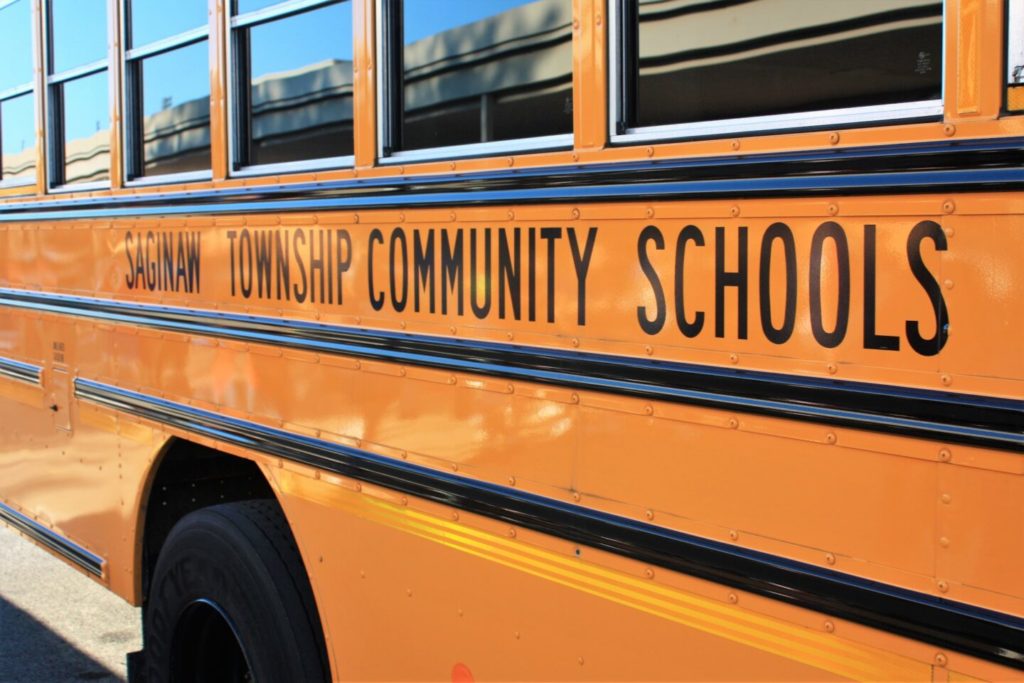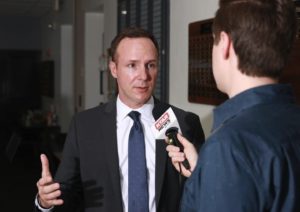Michigan school district to ask voters for $243 million bond
(The Center Square) – Saginaw Township residents might see up to a $460 annual increase in tax bills if voters approve a tax hike to repair school buildings.
The Saginaw Township Community Schools…

(The Center Square) – Saginaw Township residents might see up to a $460 annual increase in tax bills if voters approve a tax hike to repair school buildings.
The Saginaw Township Community Schools Board of Education placed a $243 million bond proposal for 30 years on the May 2, 2023 ballot. With voter approval, the bond would finance school facility improvements, including demolishing three classroom pods and constructing a new 600-seat theater at Heritage High School.
The bond proposal would require a 5.75 mill tax increase, or $5.75 on each $1,000 of taxable valuation, which the school says will cost the average Saginaw Township Community School District homeowner in a $100,000 home with a taxable value of $50,000, $287.50 per year, or $23.95 per month.
However, Saginaw Charter Township Assessor David Johnson told The Center Square that the average taxable home value is $80,000, which would bring a $460 tax bill assuming a 5.75 mill tax increase.
The district expects to borrow from the State School Bond Qualification and Loan Program to pay debt service. The estimated total principal amount of that borrowing is $39 million and the total interest to be paid is $71 million. The millage levy associated with that borrowing is 36 years and the estimated computed millage rate is 7.89 mills.
Richard Spitzer, newly-elected Republican Saginaw County District 3 commissioner, says the costs to taxpayers would be too high.
“I think we ought to hit pause on this and vote no, and take the time to explore further options and maybe find a way to lower the total cost to the taxpayer to the point where maybe we can afford it,” Spitzer said in a phone interview with The Center Square.
He suggested using federal money for public safety, lobbying to use funds from the state lottery differently, or using other money for school repairs instead of raising taxes. Spitzer said the district should focus on priority infrastructure needs.
A 22-page list of school renovations is here. Many projects seem dire, such as spending $1.7 million to replace the roof of Heritage High School for $1.7 million. But Spitzer questioned other spending, including $1 million to replace football field turf, $700,000 to construct a baseball field, $600,000 to replace the press box, $550,000 to build a softball field, $500,000 to replace tennis courts, and $300,000 to replace the home bleachers.
“Are these things that are nice to have? Heck, I wouldn’t argue that point,” Spitzer said. “Are they must-haves right now? That’s open for debate.”
Spitzer cited Taxrates.org, saying Saginaw County ranks in the top 21% of all counties for property taxes as a percent of median home value, ranks in the top 16% of all counties for property taxes as a percent of median income, and ranks 24% below the national median income.
“About 29% of Saginaw Township is over the age of 65, so arguably, close to 1/3 of our population might be living on fixed incomes,” Spitzer said. “They have no other source of income to pay for this.”
He said 42% of the Saginaw Township’s population earns less than $50,000 annually.
District Superintendent Bruce Martin backs the bond proposal. He says “the proposed updates to school facilities focus on enhancing student safety and security while upgrading and renovating school facilities, which average 64 years old. The updates will meet the learning needs of today’s students and keep us competitive with school facilities in neighboring school districts.”
The school district received $7.3 million in COVID funds. Of that, more than $500,000 funded a Heritage High School student center and lighting and floor upgrades, according to the district website.
The proposed bond amount is $200 million more than the last proposed bond. In 2008, voters passed a $40.4 million bond proposal on a vote of 3,877/3,120 for construction, safety, and athletics. But in 2007 and 2006, voters rejected a $39 million bond proposal and a $104 million proposal, respectively, on votes of 3,456/3,851 and 2,996/6,217.



